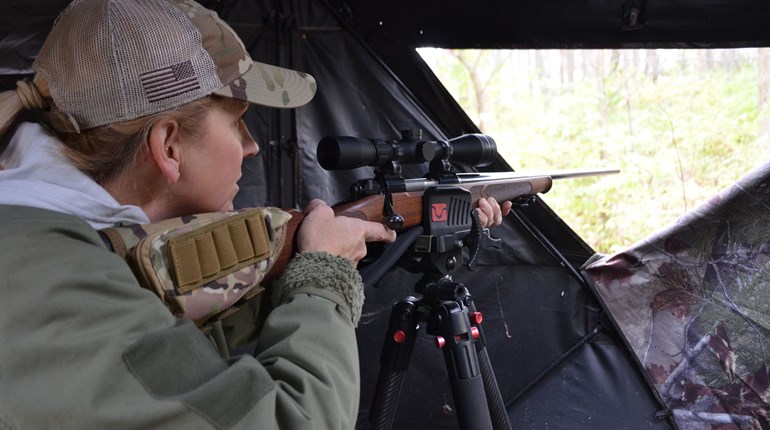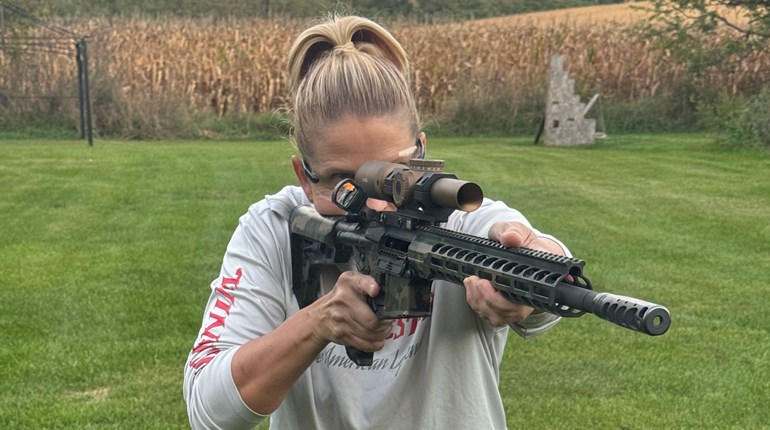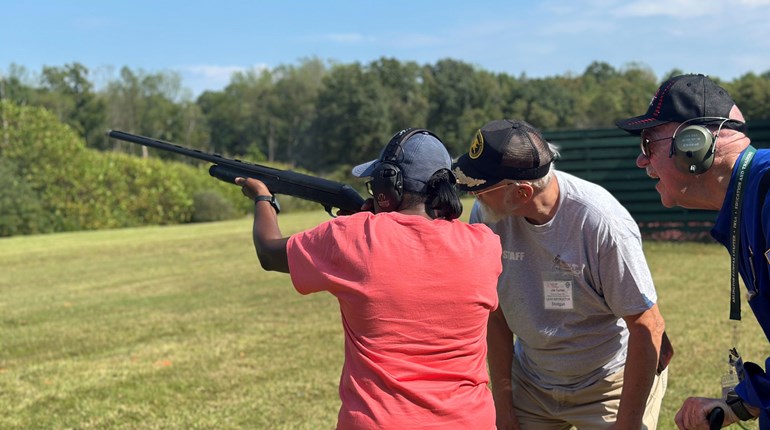
For those who espouse their freedom to use a firearm, whether as a tool for self-protection, as a pastime or as a sport, the politics of gun ownership seems a never-ending struggle to hold the government to the law. We appeal to our state representatives when a bill is introduced that would cross the line of what the government can legally regulate. We get active when those who don’t understand our constitutionally protected right to keep and use firearms push for legislation that denies personal freedom, and so on. Addressing these concerns is necessary to keep the balance of power between the government and “we the people,” who are represented by that same government.
But the politics of firearms also has a more personal side. What happens when our family or those whom we consider family, have a prejudice against firearms, or grandma advocates for gun control? Is there a point where anti-gun advocacy goes too far and becomes abusive to gun owners simply exercising their rights? Here are some ideas to help you be better prepared to address anti-gun prejudice inside the home.
1. Stick to the facts.
Don’t impart emotion or cast judgment. This can be difficult, but highlighting the facts can keep the discussion objective, not based on emotion. Refrain from calling someone an ostrich if they live in a high-crime area and want to blame guns instead of people. Rather, cite crime statistics from areas with low crime vs. high crime and how gun control laws overlay those areas.
Discover the reason that the person with whom you’re having a discussion holds his or her beliefs, and then share the facts that contradict their position. This might take multiple discussions—maybe it’s a Thanksgiving and Christmas conversation. You can come back with, “So Uncle, I found some facts that shed light on that topic we discussed.” Be patient and return with a well-researched set of facts, not judgment about their belief. That might be what it takes to help someone who has been fed mistruths. Accept that they don’t have all the facts. It might take a someone repeatedly being presented with enough facts and exposure to the truth, but it can eventually cause a person to stop and think objectively.
2. Get comfortable with disagreements.
Disagreeing on a topic is not an argument, and arguing your position is not inherently “bad.” Any opinion that you want others to consider needs to be argued. You see arguments for your approval all the time; from commercials to newspaper op-eds to social media posts—anything that attempts to sway your mind to accept and adopt a belief or idea is an argument. How subtly that argument is laid out determines whether you consider it an “argument” or not.
Try not to think of your position on firearms as something to fight about, rather one for which to advocate. Find the reasons that you believe support your position as the correct (or legal) position, and support that with facts. In fact, try to talk not in terms of right/wrong, correct/incorrect, but rather “the legal position.” No one can argue “right” when something is contrary to the law.
Remember that someone with an opposing view won’t want to consider your view or change their mind if you belittle them. You might prevent a person from considering your view, and the facts, if an argument turns emotional. It is OK to start off laying out ground rules—that you won’t let your healthy debate fall into that trap. Ask them to quantify any emotional argument with facts and then hold them to that when they resort to emotion.
If you focus on facts, it is easier to shut down the emotionally driven arguments, like the “How many children have to die …?” Ask how many children are dying from firearms related incidents that are not accidents. Curious people know that accidents and suicide numbers have been added to statistics to paint guns in as poor a light as possible. In 2021, 54 percent were suicide. It’s also an interesting fact that in 1993, murder with guns was high, but it wasn’t the popular drumbeat in the camps of the anti-gunners to cry, “How many children…” It highlights that other things underpin crime rates, and it’s not law-abiding gun owners.
Highlighting that people’s perceptions are being manipulated through emotion leaves room for people to start thinking for themselves. Why is it that it’s not popular to teach firearm safety? (We have Drivers Ed to teach vehicle safety—and cars are involved in many more deaths.) We show alcohol (95K related deaths annually in USA) and drugs like marijuana on mainstream TV—both of those have their own association to death—and we could ask, “How many children have to die…” from their use.
A great discussion to have with your family is: “What makes people good?” Is it restricting access to inanimate objects (like guns, knives or alcohol) or is it something deeper in society that is responsible for people’s morality?
3. Determine where you draw your line in the sand.
Outside of civil conversation and healthy debate, there can be a point where adults need to recognize that there are some people with whom it’s just not worth arguing. It’s sad when it’s family, but there can come a point when just conversing about firearms with family members who are extremely prejudiced poses a risk. If you have a relative who is so opposed to guns that they are actively antagonistic, it’s probably best to not enter discussion with them. In some cases, it’s probably best they know as little about your firearms as possible.
Why would you ever not talk about firearms with family? Recently a friend shared with me a situation in which a sibling who had some opposite political views decided that a law enforcement officer (LEO) sibling who disagreed with them should be labeled “unhinged,” simply because he stood his ground on not accepting radical, anarchist behavior as something to tolerate. The person questioned whether her sibling, an LEO, should be labeled “unhinged” because he wouldn’t condone anarchist behavior. This shows not only prejudice to someone else’s views, it shows a willingness to threaten the other person by hypothesizing that they might do something criminal. This is not sibling behavior! To anyone looking in, that’s a threat to the person’s position as an LEO, and to their personal freedom and privacy. It’s probably best to keep that sibling at a distance. If they persist, they could possibly be presented with a cease-and-desist order from a lawyer for slandering the LEO’s reputation and threatening his livelihood.
While we hope this example is rare, it Is precisely why it has been argued that Red Flag laws threaten individual rights. The risk for abuse by those who would challenge law-abiding gun owners is real. Theoretically, if someone disagrees with a relative’s stance on firearms, they could falsely claim that that they are a risk from an “unhinged” gun owner in their family.
In the end, families have many beliefs and issues on which they are free to disagree, to debate, or maybe even to not lose sleep over and decide to ignore. But if a family member becomes abusive or threatening over a belief you hold, it’s time to draw your line in the sand.
In the end, we can help move the needle on gun rights by having civil conversations that focus on fact instead of emotion, but if you are threatened by someone who doesn’t like your legal choices in life, walking away from that relationship is probably best. And getting legal counsel might be a wise choice, depending on how volatile the person is with their verbal abuse. No law-abiding person should be subjected to threats from someone who thinks it’s safe to engage in slander simply because disliking guns is considered en vogue.














































